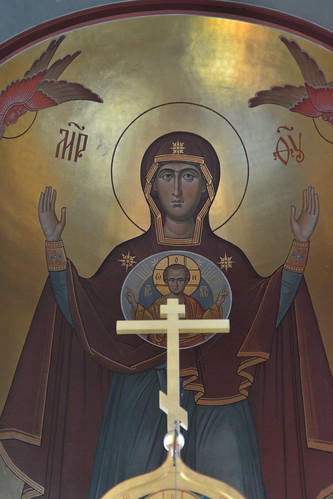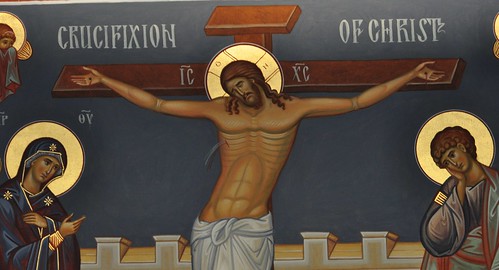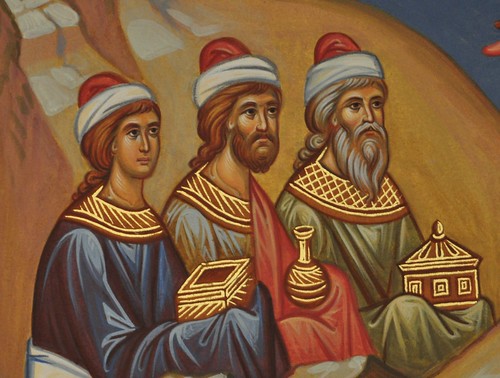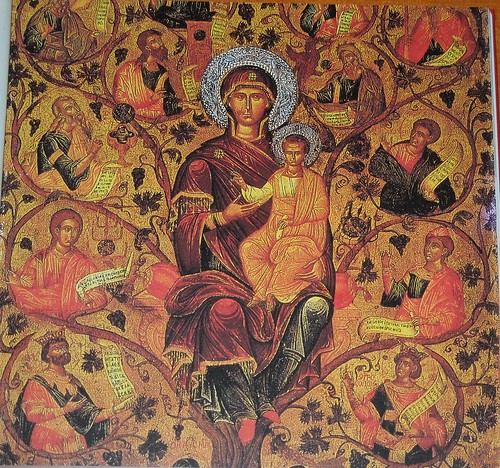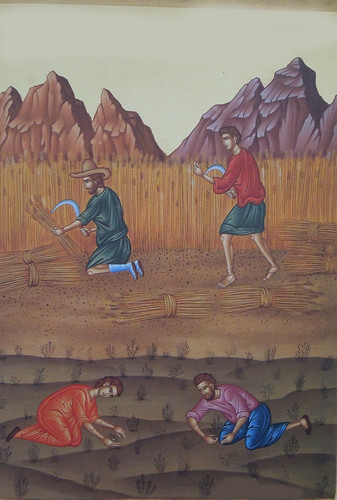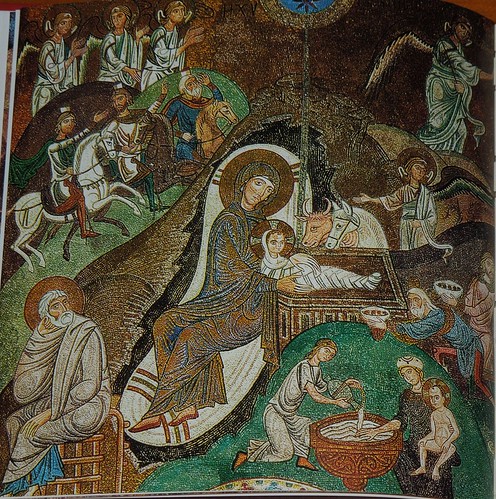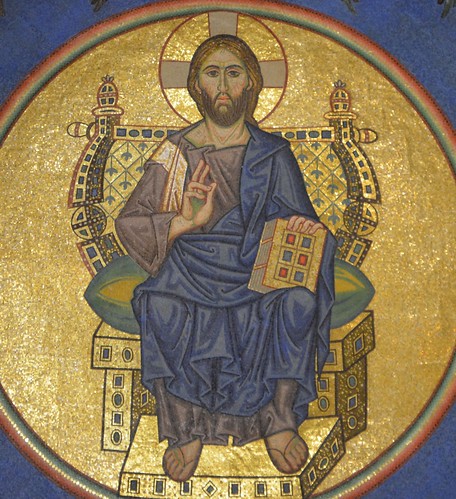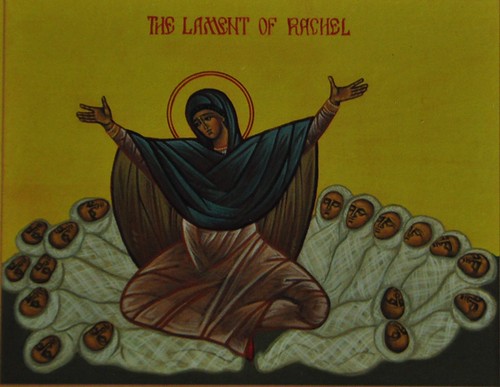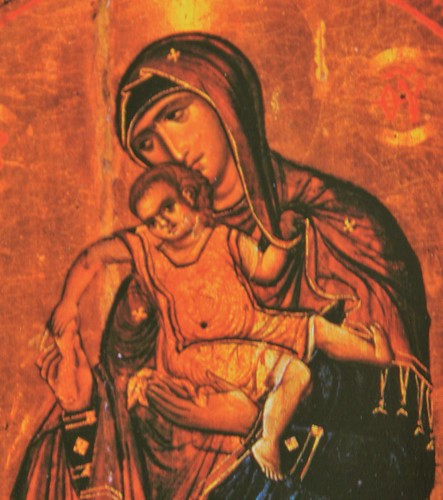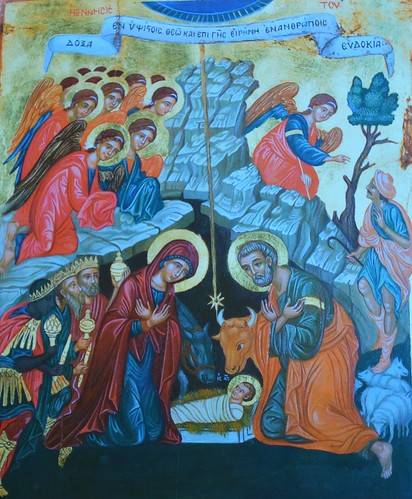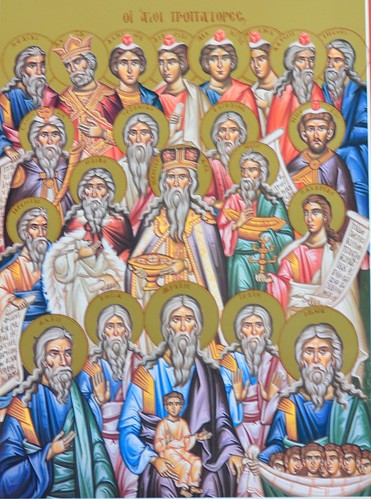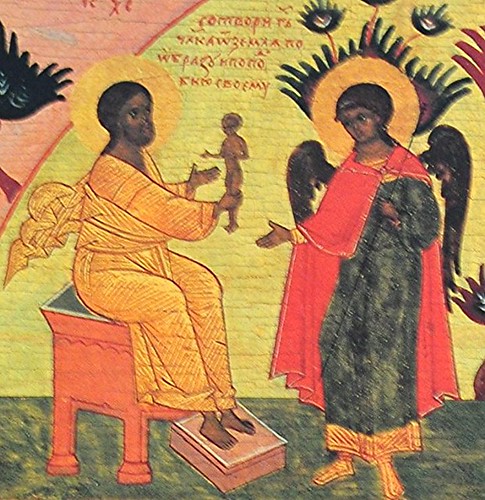“There is nothing as sacred as a human being, whose nature God Himself has shared.” (St. Nicholas Cabasilas)
“The glory of God is a living human being.” (St. Irenaeus of Lyons)
Christmas focuses on the incarnation of our God. And the incarnation is the most amazing act of God – for God sees in humanity something so sacred that God desires to be united to humanity. The Holy God wishes to share in human nature because God sees in humanity something lovely and holy and blessed. God chooses to share in human nature. This is the mystery of the God of love which results in the incarnation – results in the Nativity of Christ.
St. John Chrysostom describes it this way in a homily:
And in what manner was the almighty with her, Who in a little while came forth from her? He was as the craftsman, who coming on some suitable material, fashions to himself a beautiful vessel; so Christ, finding the holy body and soul of the Virgin, builds for Himself a living temple, and as He had willed, formed there a man from the Virgin; and, putting Him on, this day came forth; unashamed of the loveliness of our nature. For it was to Him no lowering to put on what he Himself had made. Let that handiwork be forever glorified, which became the cloak of its own Creator. For as in the first creation of flesh, man could not be made before the clay had come into His hand, so neither could this corruptible body be glorified, until it had first become the garment of its Maker.
As Chrysostom envisions Christmas, Christ Himself as Creator fashions the body in the Virgin’s womb that He Himself will take for Himself. God is able to see in humanity something so holy that God wishes to be united to the holiness of humanity. God chooses to share His natural holiness with the humans created in God’s image and likeness.
Chrysostom goes on:
What shall I say! And how shall I describe this Birth to you? For this wonder fills me with astonishment. The Ancient of days has become an infant. He Who sits upon the sublime and heavenly Throne, now lies in a manger. And He Who cannot be touched, Who is simple, without complexity, and incorporeal, now lies subject to the hands of men. He Who has broken the bonds of sinners, is now bound by an infant’s bands. But He has decreed that ignominy shall become honor, infamy be clothed with glory, and total humiliation the measure of His Goodness.
For this He assumed my body, that I may become capable of His Word; taking my flesh, He gives me His spirit; and so He bestowing and I receiving, He prepares for me the treasure of Life. He takes my flesh, to sanctify me; He gives me His Spirit that He may save me.” (St. John Chrysostom)
The mystery and the amazement continues. For God chooses to unite Himself to humanity while human nature is still subject to the power of sin and death. God doesn’t choose perfect and sinless human nature before the Fall, but accepts human nature as it is in the world. God enters into the human condition and does not create a special humanity and a special world free of sin, temptation, violence, evil, suffering, sorrow or death. God enters into the world that we experience with all of its suffering and sorrow and accepts our human nature. God enters into our lives and embraces the same life that we all share. God is not distant and transcendent, but near you where you are .
Since, therefore, the children share flesh and blood, he himself likewise shared the same things, so that through death he might destroy the one who has the power of death, that is, the devil, and free those who all their lives were held in slavery by the fear of death. For it is clear that he did not come to help angels, but the descendants of Abraham. Therefore he had to become like his brothers and sisters in every respect, so that he might be a merciful and faithful high priest in the service of God, to make a sacrifice of atonement for the sins of the people. Because he himself was tested by what he suffered, he is able to help those who are being tested. (Hebrews 2:14-18)
There is nothing as sacred as a human being. Even an imperfect human, a sinner, a flawed person, one beset with temptation. For God every human being is sacred – no matter who I am, no matter what I think about myself, or what others think about me. In God’s eyes, I am still sacred, holy. I am to be what God is. “Be holy for I am holy, ” says the Lord (1 Peter 1:16). This is why God became incarnate. God became human because God sees humans as having a holiness to which God wishes to unit Himself. God did not avoid the fallen, sinful world, but entered into and shared our life in this world.


